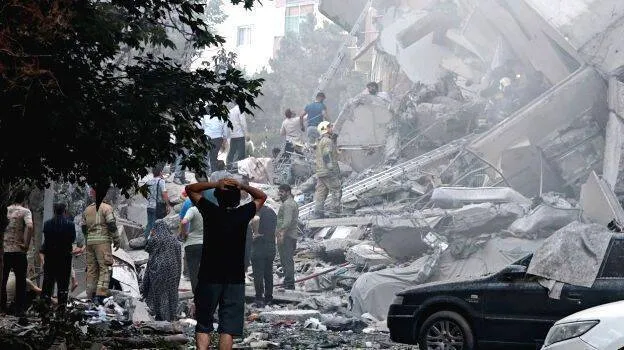

TEL AVIV: Israel launched a massive airstrike on Iran, triggering fears of war across West Asia. Over a hundred strategic targets were destroyed, including the headquarters of the Islamic Revolutionary Guard Corps (IRGC), one of Iran's most powerful military factions.
Top military commander Mohammad Bagheri and IRGC chief Hossein Salami were killed in the attack. Both were key figures close to Supreme Leader Ayatollah Khamenei and held decisive influence within the regime.
Around 200 fighter jets dropped bombs and missiles. Nuclear facilities were destroyed, and six nuclear scientists were killed. About twenty senior military officers were also assassinated.
According to Iranian sources, 78 people—including women and children—died, and 329 were injured. The assault began with strikes on radars, missile launchers, and rocket bases. Six sites were hit in Tehran alone. Iran closed its airspace, and countries including India rerouted their flights. The operation was named "Operation Rising Lion" and was carried out around 3 AM on Friday.
The Israeli strike came amid a breakdown in nuclear negotiations with the U.S. The U.S. denied involvement. However, President Donald Trump warned that Iran should agree to a nuclear deal before Israel launches a more devastating attack. Iran strongly accused the U.S. of backing the attacks. Countries such as Qatar, Saudi Arabia, and Russia condemned the assault.
Key figures assassinated
Khamenei vows retaliation
Supreme Leader Khamenei vowed an “unexpected, intense, and painful” response. Iran launched around 100 drones towards Israel, most of which were intercepted. A state of emergency was declared in Israel.
Spike in gold and crude oil prices
Gold price in Kerala rose to ₹74,360
Crude oil price rose to $79 per barrel
"The attack was aimed at destroying Iran’s nuclear sites and ballistic missile factories."
– Benjamin Netanyahu, Prime Minister of Israel